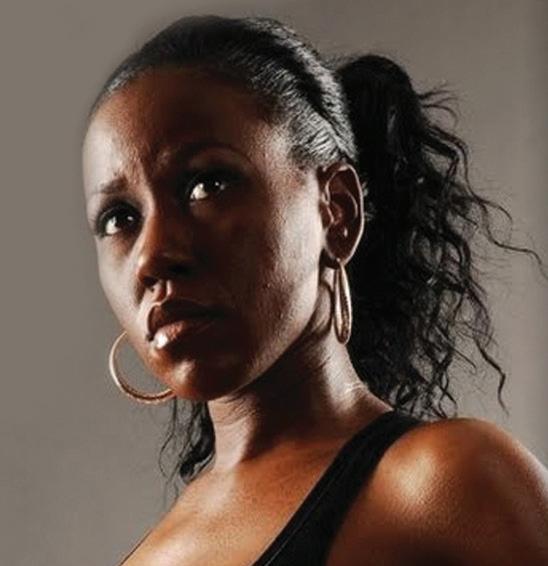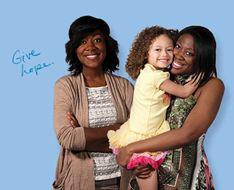
7 minute read
FINDING PURPOSE
from POTF Magazine
by Shon Burks
n recent years I had begun to feel discouraged in my search to find my “Purpose”. “What am
I on this earth to do?” “What is my calling?”
Advertisement
I always loved volunteering, and working with adolescent girls, yet the jobs I worked did not seem to fill that space. After moving from one unfulfilling job to the next, I became somewhat disheartened and set aside my dreams of finding this thing called “Purpose”. I eventually started a small business doing odd jobs for people. It paid my bills, and I continued to live my day-to-day; but with a constant nagging feeling that I was supposed to be doing more. I decided to take on a part-time job working with young adults at a mental health agency, where I had the privilege of meeting a special young girl (I believe she was 17 years old at the time). For the purpose of preserving her privacy, I will refer to her as “Tina.”
Tina was assigned to me as a client for Case Management and Behavior Modification. In our
first meeting, her mother and stepfather described their concerns and issues through jaw-dropping accounts of her sexual misbehaviors, acting out,
and violent physical outbursts. I remember thinking “Who does all that?” She had been diagnosed with Bipolar disorder, and ADHD, and often refused to take her medication. After the first meeting with mom and stepdad, I had it set in my mind that when I met this young lady she was sure to be a monster. Approximately one week had passed since my initial meeting had taken place with her parents, when I received a frantic phone call from Tina’s mother. She was talking very fast, saying she needed me to come immediately. Mom said that Tina was out of control and she (mom) was feeling overwhelmed and was set to call the police to have Tina re-admitted [to the hospital]. I jumped into my Honda and made the 30-minute drive to their house to attempt to de-escalate a situation I was oblivious to any details about. I arrived at the home and got a brief update that included Tina refusing to take her medication, screaming at the top of her lungs, and lashing out physically at her parents.
I walked judgingly toward the bedroom, preparing myself to
meet this “devil child” face-to-face. I announced myself as I entered the room (that no longer had a door) only to find that Tina had barricaded herself behind her bed with pillows. She was lying on the carpet in a fetal position, still visibly crying and shaking; yet she looked up at me immediately. Her eyes melted my soul when we locked gazes for those lengthy seconds. Despite them being red from crying, there was something I saw deeper in them also crying out for help. I sat down beside her on the floor and that’s where we stayed for over two hours talking. Tina was very articulate in her ability to explain her feelings to me, and more about her relationship with her family. She informed
me that she had been molested at the age of 7 by a family friend,
and that no one believed her; not ever her mother. How she had always been made to feel like the black sheep of the family, and often just wanted to die. She said she ran away because every day she was confined and restricted to her room—from the time she entered the door from school, until she left back out in the morning. Her room contained only a bed,

Finding Purpose
Story by MELISA COLLINS
dresser, and book shelf. She revealed that she would sneak out to see her boyfriend, who was the only person (that she believed) truly cared for her and believed in her.
She wished more than anything to be able to talk to her mom about her feelings

and be heard without being overshadowed by the opinions and dictatorship of her stepfather. I listened intensively so as not to interrupt her thoughts and tried not to break the golden rule of becoming emotionally involved with a “case.” It was hard. She had the sweetest spirit, and her tears were genuine. Before I left that evening, I gave her my number with instructions to call me directly when she felt low, and assured her that I would be there to listen. I thought of her the entire ride home. I met with Tina several times after that night; at her school and at her home. The short time
that I got to know her, I saw that her behaviors were unmistakably without a doubt linked to her sexual abuse, and her feeling of powerlessness and inability to deal with her pain and receive the proper help
she needed. It was also apparent that her feelings of neglect often led to acts of rebellion and other misbehaviors. The hardest part for me was getting the mom and stepdad to see that as well. Along with working with Tina on her Behavior Modification Plan, I fought hard for her need to be heard, and became her voice; which for so long had been silenced. I spoke for her in Juvenile Court hearings, school meetings, and at some psychological appointments. Her side of the story was being told and decisions were then being made based on the “whole picture”. I was eventually assigned several other young girls while working with that agency, whose behaviors also mimicked those of Tina’s; many admitted to being sexually abused as well. As with Tina, I became their advocate when needed, too.
I wish I could say that Tina accepted her behavior plan and went on to become a model citizen, and that her family became the support system that she so deeply
needed. However, she did not; and neither did the family. I also wish I could say that she was the last young girl that was referred to me for behaviors harshly mimicking those of Tina’s, but I cannot say that either. Over half of my case load was adolescent girls of which 16 admitted to being sexually abused.
What Tina’s situation taught me though was to follow my heart instead of just “doing my
job.” As I sat one day, again, thinking about my purpose, I realized that working with
Tina, and the other young girls, also helped me to find my purpose. I knew from that day forward, as I playfully scribbled an “A” on the back of my notebook, that my purpose was to be an “Advocate” for girls in need. Advocating gives me the passion to challenge, and the desire to find change for the lives of girls faced with extraordinary circumstances such as theirs. I later left that agency because I knew in my heart the services that were needed for these girls was not medication and locked facilities, but compassion, support, resources, and proper therapy. I then chose to re-ignite "I am ... an advocate for at-risk girls—many who have been sexually abused." my love for volunteering and my own non-profit that I had previously set aside. I am currently volunteering as an advocate for at-risk girls—many who have been sexually abused—being a voice for them and helping their families with finding the services and resources they need. I realized that my purpose was to help girls and young women understand that their lives also had one—despite anything that may have happened to them in their lives. MeLisa Collins is the Author of When I Grow Up I Want to be a Prostitute, Founder and Executive Director of the AS I AM Girls Club, a non-profit program for girls ages 11-17, and has been working in the Social Service field for over 20 years. She holds a Bachelor’s degree in Psychology from Central State University, and a Masters in Non-Profit Management. She is available for seminars, works shops, and open discussions for young girls covering the areas of self-esteem, personal development, character building and self-discovery. For more information about the AS I AM Girls Club or to have MeLisa come speak at your organization, she can be reached at 770-895-3128 or by email at asiamgirlsclub@ yahoo.com. She also maintains general information at her website asiamgirlsclub.org. Currently MeLisa resides in the Atlanta, GA area with her husband and four daughters and is actively involved with growing the AS I AM Girls Club network. Since 2005 the AS I AM Girls Club has worked with hundreds of young girls providing programs, activities, and coaching, including open discussion groups, a Pen Pal program, travel club, workshops and seminars. The goal for the AS I AM Girls Club is to assure that all young girls have something positive to do in their spare time, and learn to appreciate the value of being a girl.










